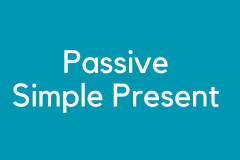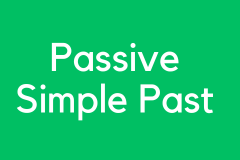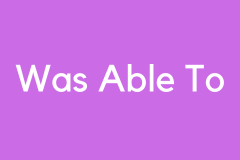Was Able To
Listen to four conversations using the grammar point.
Answer the following questions about the interview.
Was Able To
Point 1: The phrase "be able to" refers the ability to do something in the past, present, and future tense.
- I was not able to finish.
- We were able to get there in time.
- I am not able to finish my dinner.
- I will not be able to attend the meeting.
Point 2: The modal "could" can also be used to express the ability to do something in the past, but it is usually used in the negative form.
- I couldn't answer all the problems on the test.
- We couldn't get the room we wanted at the hotel.
- We couldn't see the stage from our seats.
- They couldn't attend the party. Their daughter was sick.
Point 3: Both forms are used to make questions, but the phrase 'was able to' is more commonly used.
- Were you able to get tickets to the concert?
- Could you get the seats you wanted?
- Was Mary able to finish on time?
- Was the hotel able to handle your request?
Point 4: The subject and "be" verbs apply for all sentences and questions.
- Were you able to finish?
- Yes, I was.
- Were they able to attend the party?
- Yes, they were.
Point 5: The particle "to" is heavily reduced and sounds like /ta/ when spoken naturally.
We were not able /ta/ buy the house.
He wasn't able /ta/ close the deal.
My company wasn't able /ta/ renew our lease for our office.
Most students were not able /ta/ pass the class.
Main Text Goes Here










